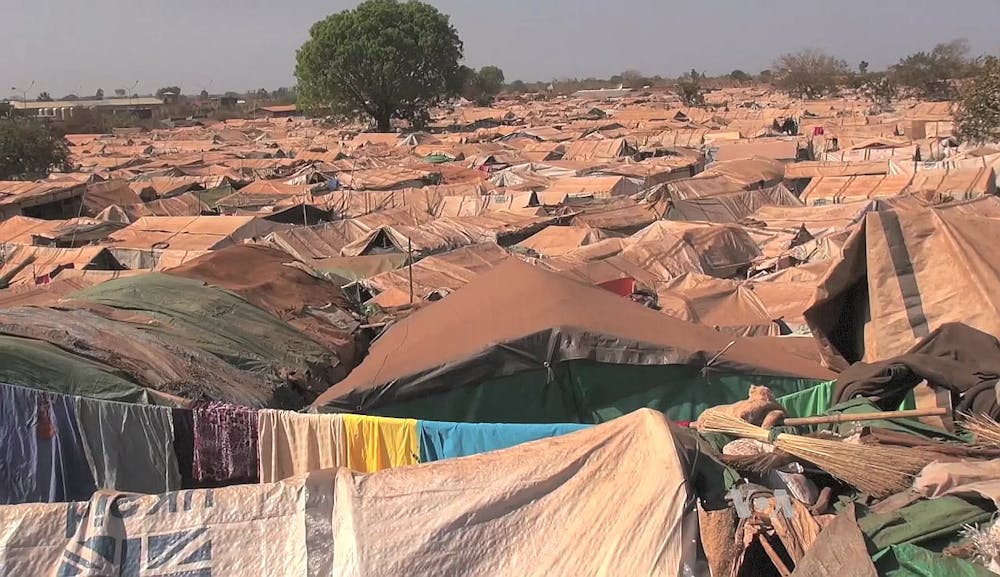By Janjabill Tahsin
Staff Writer
Gunfire and fighting erupted in mid-April between Sudan’s military and the paramilitary Rapid Support Forces in the capital, Khartoum. Nearly seven months into the war, the fighting has left a wave of destruction, with over half the population in need of humanitarian aid, according to ABC News.
“What is happening is verging on pure evil,” said Clementine Nkweta-Salami, the resident U.N. humanitarian coordinator for Sudan.
According to the BBC, tensions were on the rise because of a disagreement on the direction the country is going in and the proposed move towards civilian rule. While it is disputed who fired the first shot, members of the Rapid Support Forces were redeployed around the country in a move that the army saw as a threat in the days following.
So far, more than 10,000 people are estimated to have been killed in the current conflict in Sudan, according to The Guardian. However, both aid groups and medics suggest that the real toll exceeds recorded figures, with many of those wounded or killed never reaching hospitals or morgues.
The Rapid Support Forces have been accused of ethnic cleansing and targeting and killing non-Arab groups. Since the capture of El-Geneina, a city in West Darfur, allegations against the Rapid Support Forces and allied Arab militias have surfaced, accusing them of murdering ethnic Masalit people, looting homes and raping women. They even allegedly attacked a camp for internally displaced people in Erdamta, and there were around 800 people who were said to have been killed.
Andrew Mitchell, the U.K. Minister for Africa, said what is happening in Sudan bore “all the hallmarks of ethnic cleansing,” marking the first time the British government has used the term to describe Sudan’s ongoing crisis.
Many people are worried that the ethnic-based violence in Sudan’s vast western Darfur would lead to a repetition of the conflict there in 2003, when rebels from Darfur’s ethnic central and sub-Saharan African community launched an insurgency against the Arab-dominated government in Khartoum. The government, in response to the rebel attacks, relied on air power and an Arab militia known as the Janjaweed, who are accused of mass killings and rapes.
In 2008, the U.N. estimated that as many as 300,000 people died in the Darfur conflict between 2003 and 2005; 2.7 million were driven from their homes and Darfur became synonymous with genocide and war crimes, particularly by the Janjaweed.
Sudan’s refugee population is one of the largest in Africa, with 61% of refugees and asylum seekers in out-of-camp settlements, host communities and urban areas, while 39% are settled in camps. U.N. figures reveal that more than six million people have been displaced within or outside the country since mid-April and at least 1.2 million were forced to flee into neighboring countries because of the power struggle for control of the state and its resources between the two warring groups.
The U.N. recently requested more aid for the 2023 Humanitarian Response Plan in Sudan, increasing its original goal of $1.75 billion to $2.6 billion. The appeal aims to reach 18.1 million people but is just over a third funded.
The warring generals, Military Chief Gen. Abdel-Fattah, and the commander of the paramilitary Rapid Support Forces, Gen. Mohamed Hamdan Dagalo, also made a commitment to establish a humanitarian forum with U.N. participation. The humanitarian forum launched on Nov. 6 and ensured that relief items, humanitarian workers and assets could move safely across war-torn areas of the country. The U.N. hopes that their commitments in Jeddah will be implemented and lead to a permanent cessation of hostilities.
Martin Griffiths, under-secretary-general for humanitarian affairs and emergency relief coordinator, delivered the opening statement on Nov. 13 to the first meeting of the Sudan Humanitarian Forum.
“Following the first round of Jeddah talks and the Jeddah Declaration of Commitments,” Griffiths said, “we saw a significant improvement in our ability to move lifesaving supplies to hard-hit locations, including Khartoum and Darfur.”
In addition to this improvement, Nkweta-Salami also urged donors to provide additional money, stressing that the humanitarian situation is dire, especially in the health sector.
Health officials in Sudan have reported nearly 1,000 cholera cases in Gedaref, Eastern Sudan and Khartoum, resulting in over 50 deaths, and cases of malaria and dengue fever are on the rise.
“What we see is rising hunger,” Nkweta-Salami pointed out, as well as an increase in malnutrition among children. Measles among children under five has already led to the deaths of over 1,200 children.
Almost 80% of health care services in Sudan are based in Khartoum, and more than 70% of health facilities in conflict areas are out of service due to a lack of supplies, personnel and access. Dr. Yasir Elamin, president of the Sudanese American Physicians Association, which supports health care facilities countrywide, said, “It’s no longer safe for patients or healthcare providers to reach hospitals.”
According to the Guardian, Nkweta-Salami told reporters that “we continue to receive unrelenting and appalling reports of sexual and gender-based violence, enforced disappearance, arbitrary detentions and grave violations of human and children’s rights.”
Many countries are now focused on trying to get their citizens out because of fears that the fighting could draw in neighboring countries, with the U.K., U.S. and the E.U. all calling for a ceasefire and talks to resolve the crisis.







